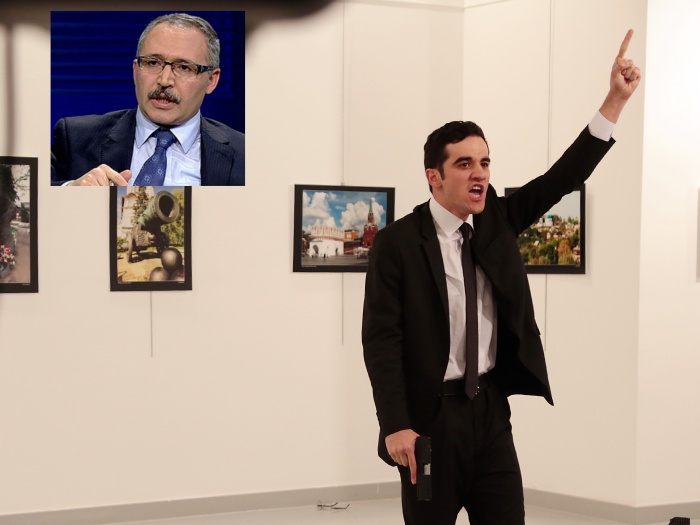As the pro-government media claimed that the murderer of Russia’s ambassador to Ankara had used a smart phone application known as Bylock in an effort to link the gunman to the Gülen movement, it was confirmed on Thursday that the murderer, police officer Mevlüt Altıntaş, did not have ByLock on his phone.
According to a Doğan news agency report, Altıntaş did not download ByLock although pro-government columnist Abdulkadir Selvi wrote on same day in Hürriyet that the police officer who shot the ambassador had downloaded the application, which is considered a sign of affiliation with the Gülen movement, according to the government.
A pro-government daily similarly claimed that Altıntaş was connected to 10 blacklisted Bylock users, according to government reports.
Selvi had initially reported live on CNNTürk minutes after the assassination of the ambassador at an art gallery in Ankara that the murderer repeated slogans of radical Islamist terrorist organization the Al Nusra Front. Yet, the next day, in contrast to his initial reporting, Selvi argued that a Gülen movement “sleeper cell” was responsible for the attack.
Selvi further asserted that the police officer was a suspect in a plagiarism investigation from 2010 in which the Gülen movement was accused of stealing questions for the KPSS exam, a prerequisite for placement in the bureaucracy. However, the murderer, born in 1994, would not have been eligible to take that exam in 2010. All the suspects in this particular probe were either dismissed or jailed. Yet, journalist Ahmet Şık, a strong critic of the Gülen movement, tweeted that the police officer has never been the subject of any Gülen-linked investigation.
Meanwhile, in an open challenge to Moscow’s statement that it is too early to say who masterminded the murder of Russia’s ambassador to Turkey, Andrei Karlov, President Recep Tayyip Erdoğan said on Wednesday that the assassin was obviously a member of “FETÖ,” a derogatory term coined by the Justice and Development Party (AKP) government to refer to members of the Gülen movement.
“The assassin of the Russian ambassador is obviously a member of FETÖ. There is no need to hide it,” said Erdoğan during a press conference with Albanian President Bujar Nishani in Ankara.
In a similar statement Turkish Foreign Minister Mevlüt Çavuşoğlu had told his US counterpart, John Kerry, during a phone conversation on Tuesday that both Russia and Turkey “know” the followers of the Gülen movement were behind the murder.
But the Kremlin said on Wednesday it was too early to say who masterminded the murder of Ambassador Karlov.
When Kremlin spokesman Dmitry Peskov was asked about the Turkish foreign minister’s comments on Wednesday, he said it was too early to draw any conclusions about who may have orchestrated the murder.
“We need to wait for the results of the joint investigative group,” Peskov told reporters on a conference call. “It is really not worth rushing to any conclusions.”
Jaish al-Fatah, an umbrella organization that encompasses the al-Qaeda-linked al-Nusra Front, has reportedly claimed responsibility for the murder of Russian Ambassador Karlov. The terrorist group claimed responsibility via a letter which appeared on the Internet. The letter was written in Arabic and has yet to be confirmed.
The Turkish government has been waging an all-out war against the Gülen movement since the outbreak of a corruption scandal in late 2013. The government’s crackdown on the movement reached new heights with a failed coup attempt on July 15 as the government held the movement responsible for the putsch. The movement strongly denies having any role in the failed coup.
In the meantime, Turkish-Islamic scholar Fethullah Gülen on Monday condemned the assassination of Russia’s ambassador to Turkey as a “heinous act of terror” and urged the Turkish government to identify anyone who aided the gunman.


